Premium Only Content
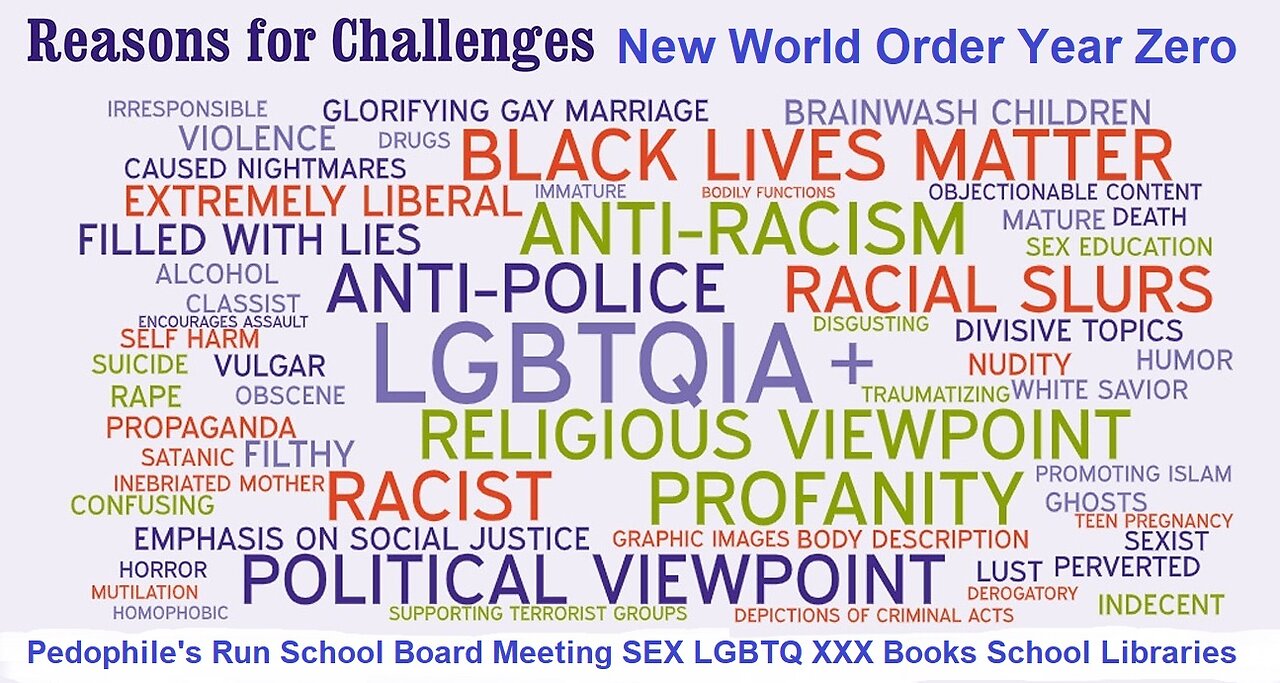
Pedophile's Run School Board Meeting About LGBTQ XXX Books in School Libraries
Throughout history censorship has followed the free expressions of men and women like a shadow. In ancient societies, for example China, censorship was considered a legitimate instrument for regulating the moral and political life of the population. Censorship is ancient and global. The origin of the term censor can be traced to the office of censor established in Rome in 443 BC. In Rome as in ancient Greece, the ideal of good governance included shaping the character of the people. Hence censorship was regarded as an honorable task. In China the first censorship law was introduced in 300 AD. Today censorship is regarded as the suppression of free expression, speech, the exchange of ideas and other expressions. Censorship can be direct, indirect and self-imposed. Chairman Makes Pastor Stop Reading Disgusting Library Book at School Board Meeting, He Responds with 5 Brutal Words was, “That makes two of us.” A North Carolina pastor gave the perfect response when members of an Asheville school board tried to stop him from reading the sexually explicit text in one of the LGBT books the board has refused to take off school shelves.
Rev. John Amanchukwu appeared before the Asheville City School Board of EducationFo on Monday to raise the alarm over a book that the board has approved for school libraries in the district. But when he tried to read aloud some of the book’s inappropriate content, the board quickly tried to shut him down.
During his time at the mic, the minister said he wanted to read out loud some of the text from the book entitled “It’s Perfectly Normal,” by Robie H. Harris and Michael Emberley, which can be found on school bookshelves. Some editions of the book, first published in 1994 and frequently updated as leftist culture has grown, have little banners on the cover that says the book is “For age 10 and up.”
Rev. Amanchukwu read some of the sexually explicit material in the book, but only got seconds into his reading before the members of the school board tried to stop him from voicing the explicit material.
“Was it something I said?” the pastor said, with a deadpan expression.
“If you don’t want to hear it in a school board meeting, why should children be able to check it out of the school system?” he continued after being cut off by the board members. “We have perverts that are perverting our kids, and you all sit back, smug in your chairs … but you don’t want me to read it. Why, does it bother you?” Amanchukwu had the perfect reply when the board members told him, “your time is up” as they tried to shoo him from the mic.
The pastor’s perfect five-word response was, “That makes two of us.”
Amanchukwu later appeared on “Fox & Friends First” to blast the school district for allowing these inappropriate books to sit on school bookshelves where grade-school-aged kids can get their hands on them.
“This book is used as a tool to create what I call mental rape in the hearts and the minds of children,” Amanchukwu said Thursday, according to Fox News.
“We are robbing kids of their innocence in America as we allow diversity, inclusion and equity to dominate our schools. And so many of our librarians are bringing this kind of material into the public school system because they believe that children need to see themselves on the shelf.”
“I don’t believe that this is perfectly normal. I believe that this is perfectly perverted and it needs to stop,” he added.
Amanchukwu slammed leftist educrats for teaching kids that every sort of sexual activity is normal, and said that for young kids, those topics are best handled in the home, not the classroom.
“I’m against these things because parents should talk about these things at home,” Amanchukwu exclaimed. “If a parent wants to talk about masturbation and be explicit with their children and show them pornographic images, I don’t advise it. I don’t think it’s something that they should do, but that should be something that takes place at home. But when we rob our kids of their innocence, we’re leading in a sense… down a slippery slope.”
“We are in a bad place in America. America is spiraling downward; it’s time to storm the cockpit as we talk about gender theory and queer theory, and we turn the schools woke,” Amanchukwu told Fox. “Our children are underperforming. Our students aren’t reading on grade level. They’re not doing math on grade level. Our achievement rates are down.”
“It’s time to get back to education and not indoctrination,” he said, adding a warning to parent that “you can’t let your guard down for one second.”
“There are sexually evil and corrupt and deviant, perverted people who believe that this is OK, and so this is how it works. They bring the pornography into the school system. They bring in these gender theory and quit the books, and the parents don’t know it’s there,” he said, before slamming the school district for forcing parents to go through a “10-step process” to remove such books.
The pastor said what is going on in schools “is sinister. It’s criminal. It’s child abuse.”
This is not the first time the minister has torched a North Carolina school board. Back in 2022, he attended a meeting of the Wake County School Board, as well, and slammed the school for wasting education dollars on meaningless, woke, make-work departments.
Amanchukwu excoriated the school for wasting money on a diversity, equality and inclusion (DEI) office, saying, “We’re wasting taxpayer dollars putting money toward this diversity office that’s not benefiting those who need it the most.”
He also paraphrased Luke 17:2 during his comments, and said, “It would be better for him if a millstone were hung around his neck and he were cast into the sea than that he should cause one of these little ones to sin.” Asheville recently enlarged its school board from a five-member, unelected board to seven elected members, according to the Citizen Times.
It has taken way too long, of course, but fortunately, Americans are finally starting to pay more attention to what is going on in our schools. People like Amanchukwu are helping expose the woke, anti-child, left-wing agenda and its penchant for grooming our children for the radical LGBTQ XXX agenda.
Mom blasts school board for allowing books promoting pedophilia in school libraries A concerned mother has slammed one of the largest school districts in the United States for including sexually explicit books in their high school libraries, which she classified as “pornography” for their graphic descriptions of sex acts between men and boys.
The parent of a student in Fairfax County Public Schools in Virginia read aloud sexually explicit material and shared graphic images featured in two books available in the district’s high school libraries at a school board meeting on Thursday. A video of her addressing the board, uploaded by the advocacy group Do Better FCPS, has received more than 300,000 views.
Stacy Langton explained, “After seeing a September 9 school board meeting in Texas on pornography in the schools, I decided to check the titles at my child’s school, Fairfax High School.” Langton held up the two books singled out at the Texas school board meeting that are also available in several public high schools in Fairfax County. She said that “both of these books include pedophilia, [and] sex between men and boys.”
“Both books describe different acts,” she added. “One book describes a fourth-grade boy performing oral sex on an adult male. The other book has detailed illustrations of a man having sex with a boy.”
Langton added, “The illustrations include fellatio, sex toys, masturbation and violent nudity.” She read aloud from one of the books, Gender Queer by Maia Kobabe: “I can’t wait to have your c**k in my mouth. I am going to give you the b**w job of your life and then I want you inside me.”
She then read an excerpt from the other book, titled Lawn Boy by Jonathan Evison: “What if I told you I touched another guy’s d**k? What if I told you I sucked it? I was 10 years old but it’s true. I s**ked Doug Goble’s d**k, the real estate guy, and he s**ked mine too.”
As Langton maintained that “this is not an oversight at Fairfax High School,” a school board member interrupted and told her that “there are children in the audience here.”
In an article on Substack, Asra Normani, the vice president for strategy and investigations at the grassroots advocacy organization Parents Defending Education, who attended the meeting, disputed the assertion that children were present at the meeting.
Langton, who didn’t appreciate the board member's interruption of her time to speak, added: “Do not interrupt my time. I will stand here until my time is restored and my time is finished. These books are in stock and available in the libraries of Robinson, Langley and Annandale High Schools.”
A school board member then suggested that teenagers’ access to the books is OK because they’re only available “for high school students.” However, the majority of high school students are younger than 18, which is the age of consent in Virginia.
Before her time was up, Langton replied to the board member’s assertion, saying, “Pornography is offensive to all people; it is offensive to common decency.” When Langton’s time came to a close, the school board attempted to introduce the next speaker as many in the crowd gave the mother a round of applause.
Langton remained at the podium as parents expressed their anger at the school board by chanting, “Go to jail!” As a security official tried to escort her away from the podium, Langton alleged that “This board is in violation of the law of the state of Virginia called 18.2-376! This board should be charged accordingly!”
The law cited by Langton is one of Virginia’s “Crimes Involving Morals and Decency.” It declares that “It shall be unlawful for any person to knowingly prepare, print, publish, or circulate, or cause to be prepared, printed, published or circulated, any notice or advertisement of any obscene performance or exhibition.”
Another member of the audience remarked that “this is child pornography and every one of you all should be arrested for allowing this bullcrap to be perpetrated in our schools and infecting the minds of these children.”
In response to the criticism, one member of the board, Karl Frisch, took to Twitter and implicitly defended the inclusion of the book in high school libraries: “It’s not every week the School Board receives two exorcisms during public comment. To be clear, nothing will disrupt our Board’s commitment to LGBTQIA+ students, families, and staff. Nothing.”
Fairfax County Public Schools released a statement Friday announcing that “The circulation of these books has been suspended, while a committee reviews and makes recommendations about the text.” After outlining the process for the “Request for Reconsideration of Library or Instructional Material,” the statement indicated that two committees had been formed to determine whether to remove the books from the schools. “Each committee will include two teachers, two parents, one school-based administrator, one member of the Equity and Cultural Responsiveness team, and two high school students. Each year, we identify potential committee members by working with our schools and regions. The committee members will be randomly selected from the list, though we will ensure that the students selected are 18 years of age given the concerns.”
The controversy is the latest example of school boards facing pushback over some of the material taught to children in public schools. In nearby Loudoun County, Virginia, parents read aloud similar literature their high school children were exposed to in a high school English class at a school board meeting this past spring.
Earlier this month, Mayor Craig Shubert of Hudson, Ohio, called on the school board to resign or face criminal charges for allowing a book titled, 642 Things to Write About.
The book features sexually explicit writing prompts intended for use in a college-level English class taught in the district’s high school. Like Langton and parents in Loudoun County, parents of students in the Hudson City School District read some of the sexually explicit writing prompts that children taking the class were asked to write about to the board.
Prompts students were asked to write about included instructions to “explain a time when you wanted to orgasm but couldn’t” and “write a sex scene you wouldn’t show your mom.”
Concerns about the kind of material children are exposed to in public schools have led to the foundation of several advocacy organizations, including Parents Defending Education and the 1776 Project PAC, which seeks to “get school board people in there who can actually start reversing it.”
This list of the most commonly challenged books in the United States refers to books sought to be removed or otherwise restricted from public access, typically from a library or a school curriculum. This list is primarily based on U.S. data gathered by the American Library Association's Office for Intellectual Freedom (OIF), which gathers data from media reports, and from reports from librarians and teachers.
As of 2020, the top ten reasons books were challenged and banned books included sexual content (92.5% percent of books on the list); offensive language (61.5%); unsuited to age group (49%); religious viewpoint (26%); LGBTQIA+ content (23.5%); violence (19%); racism (16.5%); drugs, alcohol, and smoking (12.5%); "anti-family" content (7%); and political viewpoint (6.5%).
List of books banned by governments Banned books are books or other printed works such as essays or plays which are prohibited by law or to which free access is not permitted by other means. The practice of banning books is a form of censorship, from political, legal, religious, moral, or (less often) commercial motives. This article lists notable banned books and works, giving a brief context for the reason that each book was prohibited. Banned books include fictional works such as novels, poems and plays and non-fiction works such as biographies and dictionaries.
Since there are a large number of banned books, some publishers have sought out to publish these books. The best-known examples are the Parisian Obelisk Press, which published Henry Miller's sexually frank novel Tropic of Cancer, and Olympia Press, which published William Burroughs's Naked Lunch. Both of these, the work of father Jack Kahane and son Maurice Girodias, specialized in English-language books which were prohibited, at the time, in Great Britain and the United States. Ruedo ibérico [es], also located in Paris, specialized in books prohibited in Spain during the dictatorship of Francisco Franco. Russian literature prohibited during the Soviet period was published outside of Russia.
In many territories, distribution, promotion, or certain translations of the Bible have historically been prohibited or impeded. See Censorship of the Bible.
Many countries throughout the world have their own methods of restricting access to books, although the prohibitions vary strikingly from one country to another.
Despite the opposition from the American Library Association (ALA), books continue to be banned by school and public libraries across the United States. This is usually the result of complaints from parents, who find particular books not appropriate for their children (e.g., books about sexual orientation such as And Tango Makes Three). In many libraries, including the British Library and the Library of Congress, erotic books are housed in separate collections in restricted access reading rooms. In some libraries, a special application may be needed to read certain books. Libraries sometimes avoid purchasing controversial books, and the personal opinions of librarians have at times affected book selection.
https://en.wikipedia.org/wiki/List_of_books_banned_by_governments
Here are the 100 most banned and challenged books of the decade
Top 100 Most Banned and Challenged Books: 2010-2019”:
1. “The Absolutely True Diary of a Part-Time Indian” by Sherman Alexie
2. “Captain Underpants” (series) by Dav Pilkey
3. “Thirteen Reasons Why” by Jay Asher
4. “Looking for Alaska” by John Green
5. “George” by Alex Gino
6. “And Tango Makes Three” by Justin Richardson and Peter Parnell
7. “Drama” by Raina Telgemeier
8. “Fifty Shades of Grey” by E. L. James
9. “Internet Girls” (series) by Lauren Myracle
10. “The Bluest Eye” by Toni Morrison
11. “The Kite Runner” by Khaled Hosseini
12. “Hunger Games” by Suzanne Collins
13. “I Am Jazz” by Jazz Jennings and Jessica Herthel
14. “The Perks of Being a Wallflower” by Stephen Chbosky
15. “To Kill a Mockingbird” by Harper Lee
16. “Bone” (series) by Jeff Smith
17. “The Glass Castle” by Jeannette Walls
18. “Two Boys Kissing” by David Levithan
19. “A Day in the Life of Marlon Bundo” by Jill Twiss
20. “Sex is a Funny Word” by Cory Silverberg
21. “Alice McKinley” (series) by Phyllis Reynolds Naylor
22. “It’s Perfectly Normal” by Robie H. Harris
23. “Nineteen Minutes” by Jodi Picoult
24. “Scary Stories” (series) by Alvin Schwartz
25. “Speak” by Laurie Halse Anderson
26. “A Brave New World” by Aldous Huxley
27. “Beyond Magenta: Transgender Teens Speak Out” by Susan Kuklin
28. “Of Mice and Men” by John Steinbeck
29. “The Handmaid’s Tale” by Margaret Atwood
30. “The Hate U Give” by Angie Thomas
31. “Fun Home: A Family Tragicomic” by Alison Bechdel
32. “It’s a Book” by Lane Smith
33. “The Adventures of Huckleberry Finn” by Mark Twain
34. “The Things They Carried” by Tim O’Brien
35. “What My Mother Doesn’t Know” by Sonya Sones
36. “A Child Called ‘It’” by Dave Pelzer
37. “Bad Kitty” (series) by Nick Bruel
38. “Crank” by Ellen Hopkins
39. “Nickel and Dimed” by Barbara Ehrenreich
40. “Persepolis” by Marjane Satrapi
41. “The Adventures of Super Diaper Baby” by Dav Pilkey
42. “This Day in June” by Gayle E. Pitman
43. “This One Summer” by Mariko Tamaki
44. “A Bad Boy Can Be Good For A Girl” by Tanya Lee Stone
45. “Beloved” by Toni Morrison
46. “Goosebumps” (series) by R.L. Stine
47. “In Our Mothers’ House” by Patricia Polacco
48. “Lush” by Natasha Friend
49. “The Catcher in the Rye” by J. D. Salinger
50. “The Color Purple” by Alice Walker
51. “The Curious Incident of the Dog in the Night-Time” by Mark Haddon
52. “The Holy Bible”
53. “This Book is Gay” by Juno Dawson
54. “Eleanor & Park” by Rainbow Rowell
55. “Extremely Loud & Incredibly Close” by Jonathan Safran Foer
56. “Gossip Girl” (series) by Cecily von Ziegesar
57. “House of Night” (series) by P.C. Cast
58. “My Mom’s Having A Baby” by Dori Hillestad Butler
59. “Neonomicon” by Alan Moore
60. “The Dirty Cowboy” by Amy Timberlake
61. “The Giver” by Lois Lowry
62. “Anne Frank: Diary of a Young Girl” by Anne Frank
63. “Bless Me, Ultima” by Rudolfo Anaya
64. “Draw Me a Star” by Eric Carle
65. “Dreaming In Cuban” by Cristina Garcia
66. “Fade” by Lisa McMann
67. “The Family Book” by Todd Parr
68. “Feed” by M.T. Anderson
69. “Go the Fuck to Sleep” by Adam Mansbach
70. “Habibi” by Craig Thompson
71. “House of the Spirits” by Isabel Allende
72. “Jacob’s New Dress” by Sarah Hoffman
73. “Lolita” by Vladimir Nabokov
74. “Monster” by Walter Dean Myers
75. “Nasreen’s Secret School” by Jeanette Winter
76. “Saga” by Brian K. Vaughan
77. “Stuck in the Middle” by Ariel Schrag
78. “The Kingdom of Little Wounds” by Susann Cokal
79. “1984” by George Orwell
80. “A Clockwork Orange” by Anthony Burgess
81. “Almost Perfect” by Brian Katcher
82. “Awakening” by Kate Chopin
83. “Burned” by Ellen Hopkins
84. “Ender’s Game” by Orson Scott Card
85. “Fallen Angels” by Walter Dean Myers
86. “Glass” by Ellen Hopkins
87. “Heather Has Two Mommies” by Lesle´a Newman
88. “I Know Why the Caged Bird Sings” by Maya Angelou
89. “Madeline and the Gypsies” by Ludwig Bemelmans
90. “My Princess Boy” by Cheryl Kilodavis
91. “Prince and Knight” by Daniel Haack
92. “Revolutionary Voices: A Multicultural Queer Youth Anthology” by Amy Sonnie
93. “Skippyjon Jones” (series) by Judith Schachner
94. “So Far from the Bamboo Grove” by Yoko Kawashima Watkins
95. “The Color of Earth” (series) by Tong-hwa Kim
96. “The Librarian of Basra” by Jeanette Winter
97. “The Walking Dead” (series) by Robert Kirkman
98. “Tricks” by Ellen Hopkins
99. “Uncle Bobby’s Wedding” by Sarah S Brannen
100. “Year of Wonders” by Geraldine Brooks
Banned Books of Early Christianity, The Infamous List No-stick (Gnostic) Gospels defined: sacred texts that for some reason did’t ‘stick’ around for very long, were lost, or eventually banned and made illegal with a little help from Emperor Constantine and the Roman military.
Tis a very long list indeed of hidden, banned, forbidden, censored, condemned, cursed, and even burned books. These writings of the banned, holy scriptures were once used by other versions or branches of Christianity that existed in antiquity before it became illegal for them to assemble in public, copy and, heaven forbid! circulate their alternative gospels within the boundaries of the Roman Empire.
Though much has been forever lost, some of these books of the Other Bible have been rescued from destruction. We owe a great deal of gratitude to those freedom-loving and open-minded Jews, Pacomian monks, Christians and Gnostics in Eastern Europe, Egypt, Ethiopia, Turkey, Syria, Iraq, Iran, and Armenia who risked much to translate and thus preserve many of these Other Books for future generations, for all time to come. In the case of the fifty books of the Nag Hammadi library, there were Coptic parchments removed from a near-by monastery library in Upper Egypt and buried in a large clay storage jar not far from some caves near the Nile. This clay jar ended up being a kind of time capsule that was unearthed one thousand seven hundred years later.
One definition of the word “apocryphal” is a holy book used in someone else’s version of Christianity — somebody else’s religion — somebody who went to a different church on Sunday…. or Saturday, or not at all, and yet are rejected by the big church. In a land where everyone is not free to follow the religion of their choice, one person’s treasure of inspiration is another’s kindling.
If it’s banned, it must be good! or at least informative and of historic value.
Banned Sayings of Jesus — He Made the List Too
It may interest you to know that, on the list of forbidden scriptures is included, believe it or not, an impressive early collection of the sayings of Jesus known as the Gospel of Thomas, also the Books of Enoch the Prophet.
Hey Jude!
First Enoch, included amongst the Dead Sea Scrolls — the Essene Bible, and later the Ethiopian Bible, was quoted by Jude in his short New Testament letter. Actually, the Epistle of Barnabas and several major and well-known early church fathers also quoted Enoch, referring to it as “scripture”, once upon a time in what was apparently a somewhat different Christianity back then. Having Enoch included as one’s “scripture” would have made for a radically different religion, much more in touch with it’s Essene Jewish roots. Jude also quoted, back in those free-wheeling grass roots days before the age of book-banning, another scripture eventually forbidden called, The Assumption of Moses.
John the Revelator
It’s interesting to see that the Book of Revelation was banned for awhile. Fascinating to witness! The Book of Revelation by “John” eventually, after years of haggling amongst various factions, ended up as the last book of the “Constintinian” or Orthodox New Testament of the Empire. It has been the focus of so many prophecy speculators, prophecy mongers and cult-abusers over the centuries.
Several other books that are now in Catholic Bibles were once banned — books of “The Apocrypha”. Those were and are part of the Greek Septuagint of Alexandria, literally the Old Testament of the early church (including the book of Judith, other women, also Tobit books of Maccabees, and some very important books of Wisdom). The original King James Version of the Bible in English published in 1611 contained those other books, but now they have largely disappeared in the Protestant world.
Of course! as you might have guessed, the writings attributed to Mary Magdalene made the list, as well as that of another women apostle/leader in early Christianity: Thecla.
The Odes of Love
And the Odes of Solomon was condemned as well. That’s one of my personal favorites. It’s a very beautiful, devotional (bhakti), Sufi-like, eloquent, soul-stirring and very deeply spiritual collection of new testament age psalms. Imagine if you will psalms that sound like they were composed by Rumi. That may give you some idea of what the Book of the Odes is like. I’m glad I am able to own a copy — I have six translations of the Odes.
Wisdom Rejected
Even the Sentences of Sextus made the banned list. I really like that one a lot. It’s a wonderful collection of proverbs, very valuable. Parts of it were unearthed amongst the Nag Hammadi library discovery in Upper Egypt a few decades back.
I have many of the books on this list, especially the Gnostic ones, and some of them represent great literature, the “sutras” and “upanishads” of the Western world, banned by the “Tali-ban” of their day, hardline rulers (archons) devoid of any notion of religious freedom for anyone other than themselves.
Note the official-but-not-so-spiritual-sounding shunning ceremony or “hex-curse” at the beginning of the first banned list: “…convened by the emperor Constantius, the son of Constantine, through the prefect Taurus is damned from then and now and for ever…”, then comes a VERY long list of books to be excommunicated.
Meet the Banned — The So-called Decretum Gelasianum
Here is the official list of all the banned scriptures of Christianity according to the Synod at Ariminum, which was convened by the Emperor Constantius, the son of Constantine, along with other long lists of banned books.
The following lists of banned scripture is from the book, New Testament Apocrypha, Volume one, Edgar Hennecke, Wilhelm Schneemelcher, and R. McL. Wilson, The Westminster Press.
“In the so-called Decretum Gelasianum de libris recipiendis et non recipiendis, which upon the whole is probably of South Gallic origin (6th century) but which in several parts can be traced back to Pope Damasus and reflects Roman tradition, we have in the second part a canon catalogue, in the fourth part an enumeration of recognized and ecclesiastical writers, and in the fifth part a catalogue of the ‘apocrypha’ and other writings which are to be rejected….
“The remaining writings which have been compiled or been recognized by heretics or schismatics the catholic and apostolic Roman church does not in any way receive; of these we have thought it right to cite below some which have been handed down and which are to be avoided by catholics [christians universally or orthodox].”
“Further Enumeration of Apocryphal Books…. In the first place we confess that the Synod at Ariminum which was convened by the Emperor Constantius, the son of Constantine, through the prefect Taurus is damned from then and now and for ever:
“Itinerary (book of travels) under the name of the apostle Peter,
which is called The Nine Books of the holy Clement apocryphal
Acts under the name of the apostle Andrew apocryphal
Acts under the name of the apostle Thomas apocryphal
Acts under the name of the apostle Peter apocryphal
Acts under the name of the apostle Philip apocryphal
Gospel under the name of Matthias apocryphal
Gospel under the name of Barnabas apocryphal
Gospel under the name of James the younger apocryphal
Gospel under the name of the apostle Peter apocryphal
Gospel under the name of Thomas, which the Manichaeans use
apocryphal
Gospels under the name of Bartholomaeus apocryphal
Gospels under the name of Andrew apocryphal
Gospels which Lucian has forged apocryphal
Gospels which Hesychius has forged apocryphal
Book about the childhood of the Redeemer apocryphal
Book about the birth of the Redeemer and about Mary or the midwife
apocryphal
Book which is called by the name of the Shepherd apocryphal
All books which Leucius, the Book which is called The Foundation
apocryphal
Book which is called The Treasure apocryphal
Book about the daughters of Adam: Leptogenesis(?) apocryphal
Cento about Christ, put together in Virgilian lines apocryphal
Book which is called The Acts of Thecla and of Paul apocryphal
Book which is ascribed to Nepos apocryphal
Books of the Sayings, compiled by heretics and denoted by the name
of Sextus apocryphal
Revelation which is ascribed to Paul apocryphal
Revelation which is ascribed to Thomas apocryphal
Revelation which is ascribed to Stephen apocryphal
Book which is called The Home-going of the holy Mary apocryphal
Book which is called The Penitence of Adam apocryphal
Book about the giant Ogias, of whom the heretics assert that after
the flood he fought with the dragon apocryphal
Book which is called The Testament of Job apocryphal
Book which is called The Penitence of Origen apocryphal
Book which is called The Penitence of the holy Cyprian apocryphal
Book which is called The Penitence of Jamnes and Mambres apocryphal
Book which is called The Portion of the Apostles apocryphal
Book which is called The Grave-plate(?) of the Apostles apocryphal
Book which is called The Canones of the Apostles apocryphal
The book Physiologus, compiled by heretics and called by the name of
the blessed Ambrose apocryphal
The History of Eusebius Pamphili apocryphal
Works of Tertullian apocryphal
Works of Lactantius apocryphal (later addition: or of Firmianus or
of the Mrican)
Works of Postumianus and of Gallus apocryphal
Works of Montanus, of Priscilla and of Maximilla apocryphal
Works of Faustus the Manichaean apocryphal
Works of Commodianus apocryphal
Works of the other Clement, of Alexandria apocryphal
Works of Thascius Cyprian apocryphal
Works of Arnobius apocryphal
Works of Tichonius apocryphal
Works of Cassian, a presbyter in Gaul apocryphal
Works of Victorinus of Pettau apocryphal
Works of Faustus of Riez in Gaul apocryphal
Works of Frumentius Caecus apocryphal
Epistle of Jesus to Abgar apocryphal
Epistle of Abgar to Jesus apocryphal
Passion (Martyr Acts) of Cyricus and of Iulitta apocryphal
Passion of Georgius apocryphal
Writing which is called Interdiction (Exorcism?) of Solomon
apocryphal
All amulets which have been compiled not, as those persons feign, in
the name of the angels, but rather in that of the demons apocryphal
“These and the like, what Simon Magus, Nicolaus, Cerinthus, Marcion, Basilides, Ebion, Paul of Samosata, Photinus and Bonosus, who suffered from similar error, also Montanus with his detestable followers, Apollinaris, Valentinus the Manichaean, Faustus the Mrican, Sabellius, Arius, Macedonius, Eunomius, Novatus, Sabbatius, Calistus, Donatus, Eustatius, Iovianus, Pelagius, Iulianus of Eclanum, Caelestius, Maximian, Priscillian from Spain, Nestorius of Constantinople, Maximus the Cynic, Lampetius, Dioscorus, Eutyches, Peter and the other Peter, of whom the one besmirched Alexandria and the other Antioch, Acacius of Constantinople with his associates, and what also all disciples of heresy and of the heretics or schismatics, whose names we have scarcely preserved, have taught or compiled, we acknowledge is to be not merely rejected but excluded from the whole Roman catholic and apostolic Church and with its authors and the adherents of its authors to be damned in the inextricable shackles of anathema for ever.”
Other Lists of Banned Holy Books Used By Other Indigenous Expressions of Judaism and Early or Apostolic Christianity
“The Stichometry of Nicephorus In the prolix version of the Chronography of Nicephorus (patriarch of Constantinople 806–818; cf. Krumbacher, Gesch. d. Byz. Literatur, 2nd ed. (1897), pp. 349ff.) there is a canon catalogue, the origin of which indeed has not been clearly settled, but which ought perhaps to be located in Jerusalem. Whether it is older than c. 850 (so Jtilicher) remains’ open to question. It is striking that in the enumeration of the NT books the Revelation of John is wanting. Here then a canon of twenty-six books still presents itself. The catalogue of the books of the Old and New Testaments is followed by that of the ‘antilegomena’ and of the ‘apocrypha’:
“And the (writings) of the Old Testament which are gainsaid and are not recognized in the Church (canonized) are the following:
I. 3 Books of the Maccabes 7300 lines
2. The Wisdom of Solomon 1100 lines
3. The Wisdom of Jesus Sirach 2800 lines
4. The Psalms and Odes of Solomon 2100 lines
5. Esther 350 lines
6. Judith 1700 lines
7. Susanna 500 lines
8. Tobith, also (called) Tobias 700 lines
“And of the New Testament (writings) the following are gainsaid:
1. The Revelation of John 1400 lines
2. The Revelation of Peter 300 lines
3. The Epistle of Barnabas 1360 lines
4. The Gospel of the Hebrews 2200 lines
“Apocrypha of the Old Testament are the following:
1. Enoch 4800 lines
2. (Testaments of the) Patriarchs 5100 lines
3. The Prayer of Joseph 1100 lines
4. The Testament of Moses 1100 lines
5. The Assumption of Moses 1400 lines
6. Abraham 300 lines
7. Eldad and Modad 400 lines
8. (Book of the) prophet Elias 3 I 6 lines
9. (Book of the) prophet Zephaniah 600 lines
10. (Book of) Zacharias, the father of John 500 lines
11 Pseudepigrapha of Baruch, Habakkuk, Ezekiel and Daniel ~
“Apocrypha of the New Testament are the following:
1. The Circuit of Paul 3600 lines
2. The Circuit of Peter 2750 lines
3. The Circuit of John 2500 lines
4. The Circuit of Thomas 1600 lines
5. The Gospel of Thomas 1300 lines
6. The Teaching (Didache) of the Apostles 200 lines
7. The 32 (books) of Clement 2600 lines
8. (Writings) of Ignatius, of Polycarp and of Hermas…
Catalogue of the 60 Canonical Books
“This list transmitted in several manuscripts (for information about these see Zahn, Gesch. d. ntl. Kanons II 1, pp. 28g£) reflects the view, widely held in the Greek Church at a later time, of the canon of sixty books (34 OT and 26 NT, therefore without the Revelation of John). After the enumeration of the canonical books, in which the complete silence observed regarding the Apocalypse of John is the most serious matter, there follows that of the writings ‘outside the 60' and the ‘apocrypha’.
Yes, picture books get challenged too! These kids' books (listed in no particular order) have been challenged (and in some cases, banned) for a variety of reasons.
There are lots of reasons that books can be challenged or event banned. Often the reasons are political, legal, religious or moral. Sometimes books are challenged when a person reads only a small portion or relies on reviews they have read or heard to determine suitability.
Public libraries usually follow intellectual freedom policies that guide their decisions when a member of the public challenges a book or other item. Intellectual freedom means that each person has the right to decide what they want to read, watch, or listen to (within the limits of the law). If a person objects to a book, they are free not to read it, but they do not have the right to prevent others from reading it. Parents and guardians can choose what their children read, watch or listen to, but cannot make that decision for other children.
Most libraries have a form to fill out to voice concerns about specific items, and sometimes actions will be taken like moving a book from the children's to the teen section or (more rarely) removing it from the library (for instance, if it contains outdated information).
Often books that present a different viewpoint or a new situation are an excellent opportunity for parents to have a discussion with their children. Public libraries have a mandate to provide a variety of materials from a variety of points of view to their customers, but other libraries have different mandates. For instance, a school library must support curriculum.
-
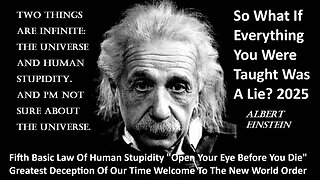 3:00
3:00
What If Everything You Were Taught Was A Lie?
3 days agoFifth Basic Law Of Human Stupidity "Open Your Eye Before You Die" Greatest Deception Of Our Time
2.74K4 -
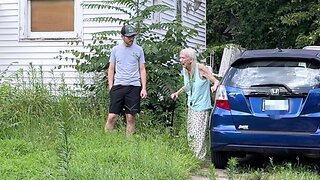 32:01
32:01
SB Mowing
25 days agoHer Tears Said It All: “My Prayers Have Been Answered”
9.84K30 -
 LIVE
LIVE
Price of Reason
9 hours agoTrump Means Business! Disney's F4 Hail Mary Pass! Assassin's Creed Shadows Art Book SUCKS?
2,479 watching -
 LIVE
LIVE
SpartakusLIVE
8 hours ago#1 Shadow BANNED Hero
1,038 watching -
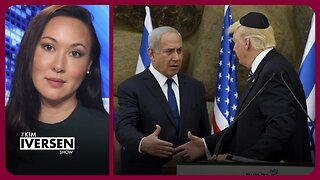 2:17:46
2:17:46
Kim Iversen
8 hours agoTrump To SMUG Netanyahu: Let's Clear “All” Palestinians From Gaza! | RFK Jr, Tulsi Move On To Round Two
63.3K399 -
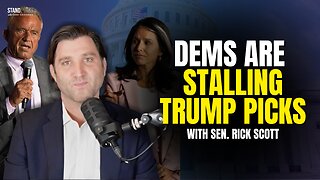 30:25
30:25
Standpoint with Gabe Groisman
1 day agoDemocrats Are Stalling Trump Appointments with Senator Rick Scott
86K16 -
 1:00:24
1:00:24
The StoneZONE with Roger Stone
8 hours agoAnthony Fauci’s Brutal History Of Animal Torture Exposed! | The StoneZONE w/ Roger Stone
58.5K18 -
 1:03:38
1:03:38
Man in America
9 hours agoUSAID Corruption, $21 TRILLION Missing, & the End of the US Global Empire?
52.2K39 -
 56:38
56:38
Flyover Conservatives
9 hours ago6 Steps to Take Advantage of Trump’s New Golden Age! - Clay Clark | FOC Show
35.2K2 -
 1:15:25
1:15:25
Glenn Greenwald
9 hours agoTulsi and RFK Jr. Approved by Key Senate Committees; Trump Meets Netanyahu: Wants to Cleanse Gaza; Pro-Palestinian Group Suspended at UMich | SYSTEM UPDATE #402
94.2K104